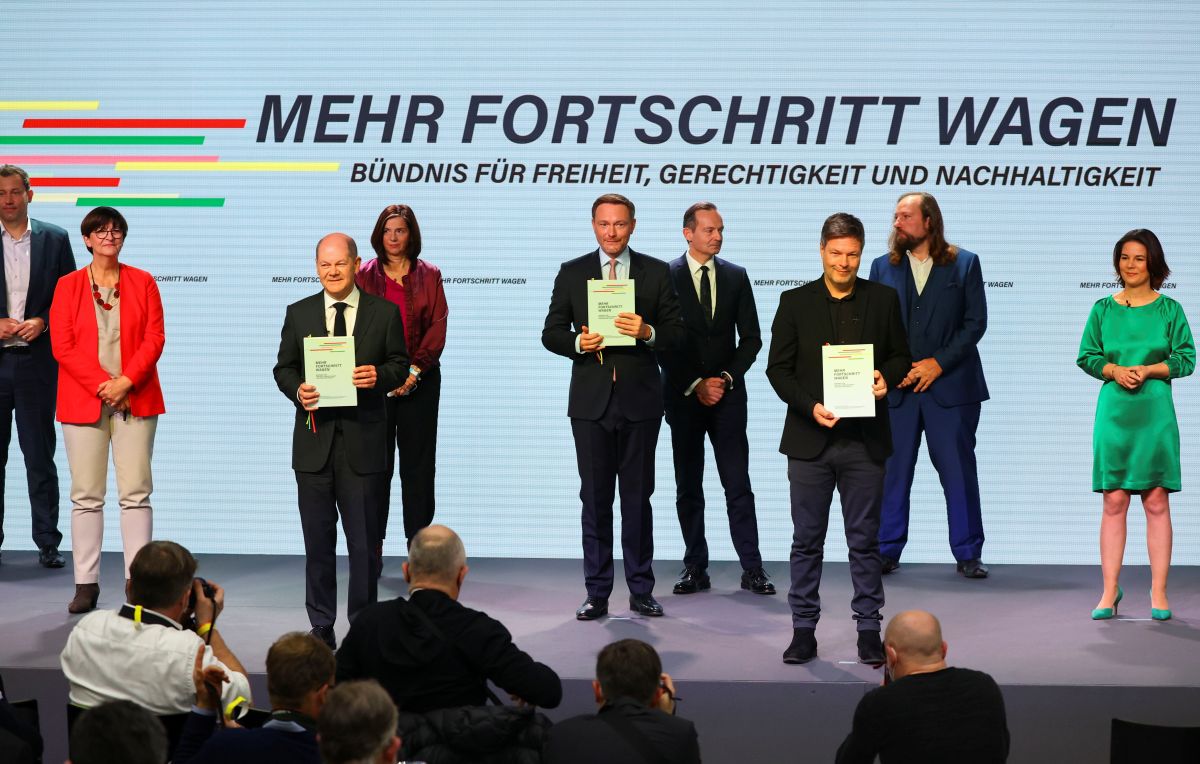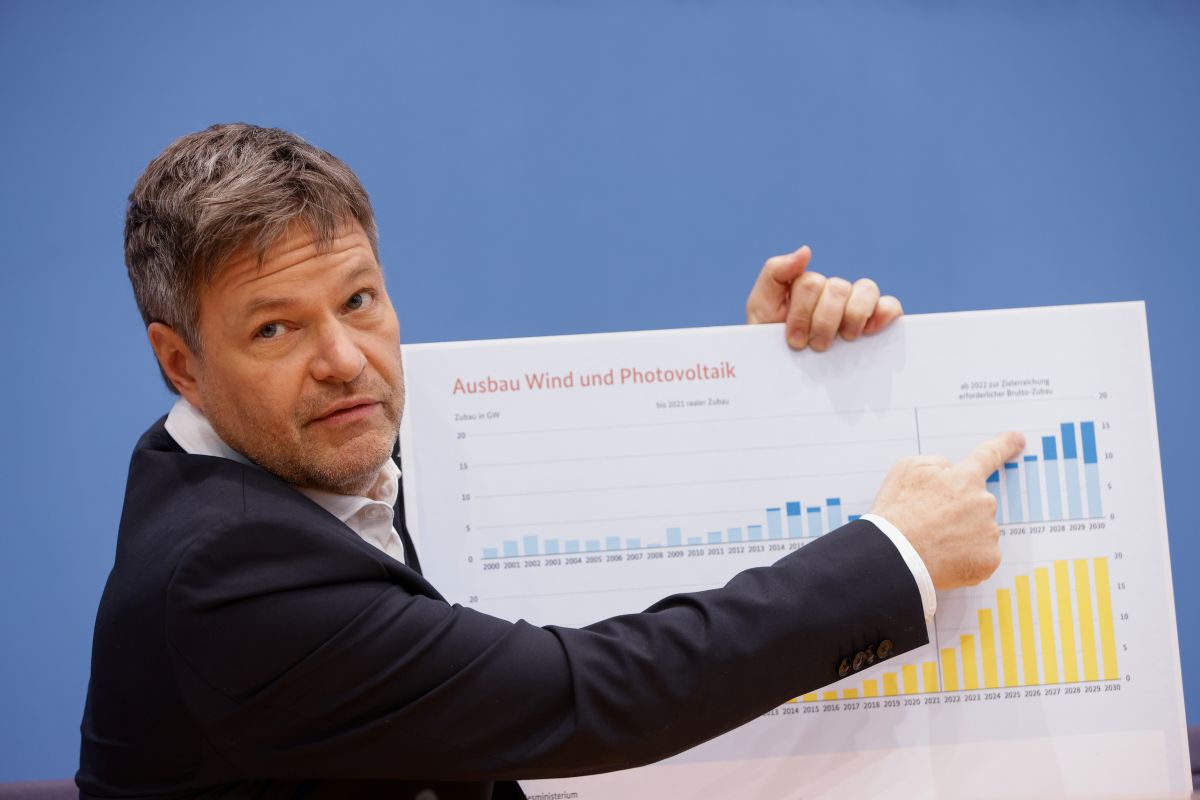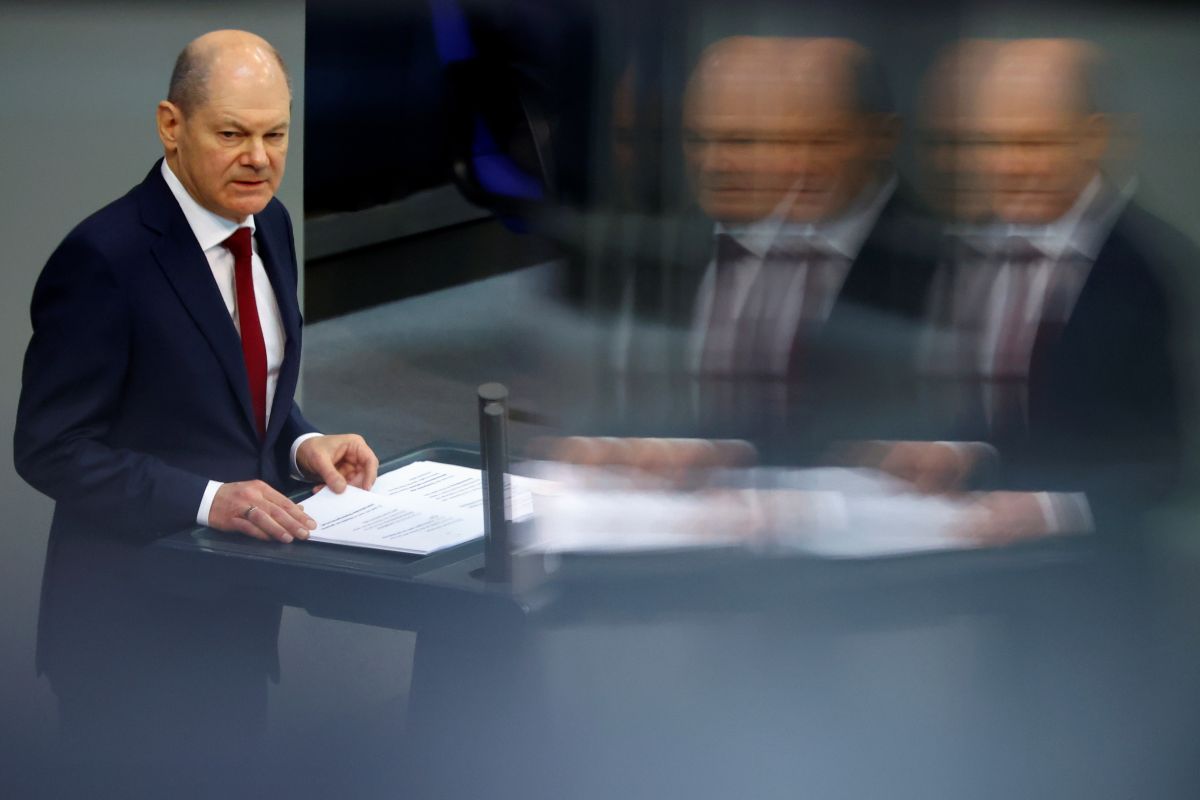Germany in the Shadow of War and Inflation: Six Months of the Scholz Government
The coalition of the Social Democratic Party (SPD), The Greens, and the Free Democratic Party (FDP) came to power with the intention of undertaking significant economic and social reforms. Their ambitious plans were symbolised by the title of the coalition agreement, “Daring to Make More Progress”. The war in Ukraine, though, has forced the government to take revolutionary steps in the areas of defence and energy security. The Chancellor’s vagueness about the supply of weapons to Ukraine has been causing his SPD’s ratings to fall and The Greens’ popularity to rise. To reverse this trend, the chancellor will pursue further social reforms.
 FABRIZIO BENSCH/ Reuters/ FORUM
FABRIZIO BENSCH/ Reuters/ FORUM
Chancellor Scholz’s Cabinet and Reform Plans
The effect of the broad coalition is a weaker Chancellor, who is forced to balance the expectations of the coalition partners and the various factions within the SPD. An additional factor weakening his position is that, unlike previous Chancellors, he is not the chairman of his own party.
The parties forming the government entered the Bundestag elections last year with a set of demands for changes to be made in many areas of the state’s operation and to address sectors neglected by Angela Merkel’s government, including the deteriorating state of infrastructure. Foreign policy remained on the margins of the election debates.
The reformist course was reflected in the coalition agreement. In line with the SPD’s demands, an increase in the minimum wage and support for housing construction were planned. The acceleration of the energy transformation was regarded as a priority and an area in which The Greens were claiming success. The FDP’s programme includes investment in digitalisation. No significant changes were foreseen in Eastern policy. Despite references to human rights and support for the territorial integrity of Ukraine, it was assumed that dialogue and further cooperation with Russia in the field of energy would be continued.
Most Significant Challenges and the Government’s Decisions
The Russian aggression against Ukraine has forced the government to take measures to increase Germany’s defence potential and resilience to possible energy blackmail by Russia. In early June, the parliament voted to enshrine in the constitution a special €100 billion fund for the purpose of refitting the Bundeswehr. This was a success for the Chancellor and the coalition leaders, who managed to break the resistance of the pacifist wings of the SPD and The Greens. However, winning the support of the opposition CDU/CSU required giving up The Greens’ demand that part of the funds should be allocated to humanitarian projects. Germany has backed six packages of EU sanctions against Russia, including an oil embargo, and has agreed to supply German arms to Ukraine.
The success of the government and Chancellor Scholz is also the implementation of some of the social promises. From October, the minimum hourly wage will rise from €9.82 to €12. The tax-free amount for part-time work (so-called mini-jobs) has also been raised. These steps will improve the situation of low-earning workers.
The war in Ukraine has led to the perception of renewable energy development as an element of energy security. The accelerated energy transformation is to be one of the ways to become independent from Russian supplies (in addition to investments in LNG terminals and the diversification of deliveries). In April, Vice-Chancellor Robert Habeck (The Greens) presented the “Easter package”, which envisaged facilitations for the development of offshore wind farms, the elimination of bureaucratic barriers for citizens investing in renewable energy sources, and increased supervision over energy networks, among other things.
The greatest challenge for the government is the rising cost of energy and food. The inflation rate in May was 7.9%, the highest since the fuel crisis of the early 1970s. Declining living standards prevent the reforms already introduced from being politically discounted. To support commuters, the government introduced a €9 monthly ticket covering public transport and regional trains. To reduce fuel prices at the pump, Finance Minister and FDP leader Christian Lindner introduced the “tank discount”, a temporary reduction in the energy tax. However, due to high fuel prices and the fuel companies’ increasing profit margins, this did not have the expected effect. A provision was also made for a special allowance of €300 to cover rising heating costs.
Tensions in the Coalition
The first six months of the SPD-Green-FDP coalition has revealed a number of differences between the parties. The reluctance of the Chancellor and some of the SPD to provide heavy weapons to Ukraine has been criticised by the Greens and the FDP, who accuse Scholz of weakening Germany’s position in NATO and the EU. The differences concern both the definition of the aims of the war and the attitude towards visits to Ukraine. The Chancellor’s use of the formula that “Ukraine cannot lose and Russia cannot win” suggests that he would be willing to accept a “frozen conflict” scenario in which there would not be any formal recognition of Ukraine’s territorial losses. Minister Annalena Baerbock’s visit to Kyiv and Bucha in May and her statement that the aim of the war is that Ukraine should win were an attempt to improve Germany’s image, and in terms of domestic politics they have strengthened the position of The Greens at the expense of the Chancellor. Scholz’s visit to Kyiv along with other EU leaders and his support for granting Ukraine EU candidate status was, from the point of view of Germany’s image, considerably overdue.
The discrepancies between the coalition partners also concern approaches to the obligation to vaccinate against COVID-19, methods of tackling inflation, and assessing the economic effects of climate policy. Referring to the slogans of economic freedom, liberals are against the introduction of a tax on the additional profits of oil companies. In contrast to the Social Democrats and the Greens, FDP MEPs, defending the interests of the automotive industry, voted against the European Parliament’s position to ban the production of cars emitting exhaust after 2035. The FDP leader is in favour of Germany’s rejection of this proposal, which makes further tensions in the coalition more likely.
The Public’s View
Economic difficulties related to inflation and the lack of a clear line on the supply of heavy weapons to Ukraine have resulted in low ratings for the government. Currently, 39% of respondents declare satisfaction with its work, while 59% are unsatisfied; 53% of the respondents are dissatisfied with the performance of the Chancellor, who is seen as lacking leadership skills. The best-rated members of government (more than 60% approval) are ministers Habeck and Baerbock, who are gaining popularity thanks to their activity and suggestions of a strong course with regard to Russia.
The ratings of politicians are reflected in the trends in opinion polls for political parties. The CDU is in the lead (26-28%), ahead of The Greens (21-23%), and the SPD is in third place (20-21%). The FDP also recorded a decline (to 7-9%). These changes were confirmed by the results of the elections to the Landtags in Schleswig-Holstein and North Rhine-Westphalia, where the SPD and the FDP were defeated and The Greens increased their support.
Conclusions and Predictions
Breaking up the coalition is not in the interest of any of the parties. The current disputes between the coalition partners do not undermine the government’s ability to function or to carry out the provisions of the coalition agreement. The collapse of the coalition would mean an image defeat for the Social Democrats and a loss of power. It can be rather expected that the introduced social solutions will be emphasised and social demands met, such as the planned legalisation of marihuana. Politically, The Greens benefit from the weakness of the Chancellor and from the clarity of their ministers. For the FDP, leaving the government in the face of declining support would plunge the entire party into crisis. As the smallest of the coalition partners, FDP will continue to emphasise their ideological separation from the SPD and The Greens.
The government’s attention will increasingly focus on the fight against inflation and on climate and social policy. The challenge will be to return next year to the “budget brake” mechanism provided for in the coalition agreement and to combine it with “safety net” packages introduced in response to inflation.
The growing support for the Greens will generate pressure on Chancellor Scholz for more aid to Ukraine. A possible scenario is that he will make further declarations about the delivery of heavy weapons, but these will continue to be implemented with delay, given the reluctance of part of the electorate and SPD politicians. Germany will emphasise its commitments to NATO, but due to the desire to leave open the possibility of diplomatic dialogue with Russia, the real actions may assume a limited scope, as in the case of the announcement of increasing the contingent in Lithuania, with the reservation that part of the forces would remain “ready for redeployment” in Germany. It is in the interest of Chancellor Scholz and the SPD to limit uncomfortable discussions around Russia’s aggression against Ukraine, arms supplies, and relations with Russia. From Poland’s point of view, the scenario of limiting discussions is unfavourable and will require further international pressure on German elites to help Ukraine and strengthen NATO’s Eastern Flank as much as possible.





